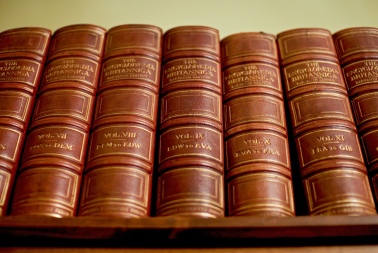
![]()

Kerry Raymond is the Vice-President of Wikimedia Australia and an active Wikipedian. She talked to The Wikiverse about how she got started and the principles behind Wikipedia.
On joining the Wikipedia movement
Well I think I first edited Wikipedia back in 2005, obviously I had read it prior to that… I was always a bit of a sporadic editor and then one day, and this will sound stupid but it really was an epiphany when I saw the vision statement in connection with the annual donation appeal that the sum of all knowledge is freely available to all people and I thought wow… up until then I guess I hadn’t thought about Wikipedia in that way and as a result of that I kind of thought gee that is kind of something that aligns with my values pretty nicely and I think I will work more with Wikipedia.
On Wikipedia’s basic ideology – collecting the sum of all human knowledge
I had grown up in this country and I have had the opportunity for a good education, but I recognize that there are many countries in the world where people don’t get those same opportunities, and educate themselves on the back of, for example, textbooks from this country… lot of them end up getting shipped in containers to countries in Africa and are put on the shelves of school libraries because they just don’t have the money to buy the books themselves and you kind of think that is a time consuming and ineffective way of delivering knowledge to those people. And I just think that Wikipedia provides a much better way to reach a world of people who are hungry for education and knowledge.

Image courtesy of Wikimedia Commons, published under CC licence
On Wikipedia’s “battleground” articles
Some articles can be quite a battleground in competing ideologies. But nonetheless, Wikipedia’s principle has always been neutral point of view. State the facts, let the reader make up their own opinion. But obviously, there is a blurry line between facts and opinions. I generally don’t find those political ones to be much of a problem as things that perhaps bring up one’s deeply held values. I personally wouldn’t edit an article on abortion because that clearly has some deeply held beliefs that people have.
Funnily enough one of the biggest arguments on Wikipedia was over the naming of the article. A town, depending on what point of history you were looking at was either German or Polish. And whether it should be either called the German name or the Polish. And should they use the different names inside the article or should they stick to only ever using one name etc. etc. etc. So you know, where there are been a long history of war and hatred, you see it resurfacing in Wikipedia articles.
So if you want a recent example, Wikipedia has a page called list of military coups. There is a little bit of an argument that broke out recently over whether Egypt, recent events in Egypt, constituted as a military coup and whether it should or shouldn’t be mentioned on this page. That’s just a recent example of it playing out. Some people see it as a military coup, other people did not, that it was a popular uprising of the people. And they say history is written by the victor, so clearly there are different points of view. But because you have a page that states ‘list of military coups’, it’s now a binary distinction, it’s either in or not. Whereas if you just talk about it its own page, you can kind of provide a case as to why it’s a military coup and a case as to why it’s a popular uprising and it’s up to the reader to make up their mind.

Image courtesy of Jonathan Rashad on Flickr, published under CC licence
On traditional encyclopaedias v. Wikipedia
And also too, traditional encyclopaedias published an annual edition each and every two years. So you have an average of 6 months to think about whether what you were writing was true or not. Where people who are editing Wikipedia are doing so on the day of that event.

Image courtesy of Wikimedia Commons, published under CC licence
That’s the thing with Wikipedia, it does reflect real events very quickly. I remember watching when Julia Gillard was going up against Kevin Rudd for the leadership of the party a few years ago and I was watching it on ABC news and watching it on Wikipedia and as soon as they were walking out of that caucus room, Wikipedia was updated: Julia Gillard is they 25th Prime Minister of Australia blah blah blah. Someone was sitting there at their computer, waiting to click that button. (Laughs) I dunno, they probably had another version on a window and had to decide which one to click save on. It happens very quickly.